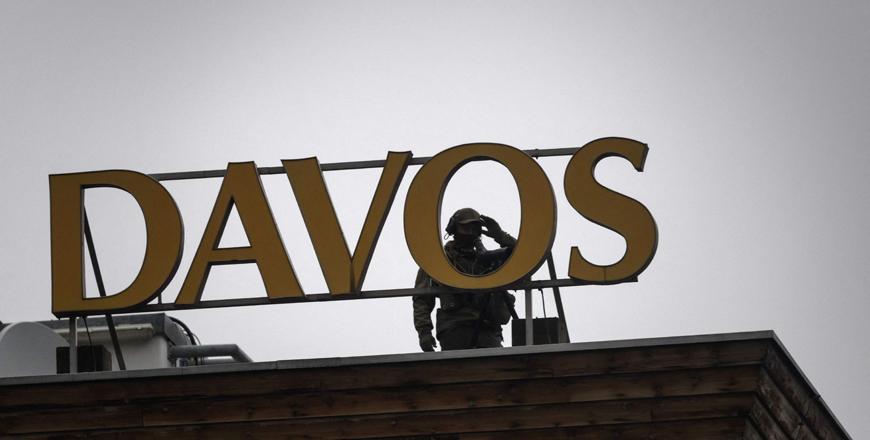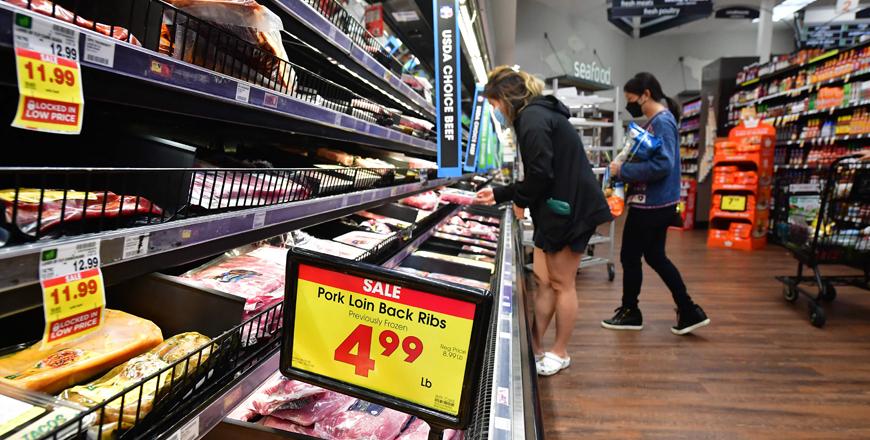You are here
Conflict trumps economy as top risk to world in Davos survey
By Reuters - Jan 15,2015 - Last updated at Jan 15,2015
LONDON — The risk of international conflict is now the biggest threat facing countries and businesses in the coming decade, trumping concerns about the economy, the World Economic Forum (WEF) said on Thursday.
The group's annual assessment of global hazards sets the scene for its meeting in Davos next week, although it is based on responses received some months ago. It is the first time the survey has headlined conflict as the top risk, reflecting an increasingly dangerous world.
The previous nine editions of the Global Risks report have tended to highlight economic threats such as fiscal crises, the collapse of asset prices and widening income disparity.
This time, economics have taken a relative backseat as nearly 900 experts in the survey fretted over the pro-Russian separatist uprising in Ukraine, the dramatic rise of the Islamic State group and other geopolitical flashpoints.
"It's very striking how geopolitical risks have shot up much more strongly than other risks," said Margareta Drzeniek-Hanouz, the World Economic Forum's (WEF) lead economist.
In addition to fears over major clashes between states, the means to wage conflict are changing, with the arrival of cross-border cyberattacks, drone strikes and the increased use of economic sanctions.
Since the survey was conducted, the economic picture has clouded significantly, with oil tumbling below $50 a barrel, the eurozone lurching into deflation and copper prices crashing this week as the World Bank cut its global growth forecast.
"We're still not out of the woods yet in terms of the economic recovery," said Drzeniek-Hanouz.
Economic concerns among experts did not diminish year-on-year but were simply overtaken by geopolitical issues, she added.
Other major risks in terms of their likelihood of occurring include extreme weather events, the failure of states and governments, and continuing high structural unemployment, the report found.
The WEF's key opinion formers also rank risks in terms of the scale of their impact, rather than likelihood, and on this basis water crises and the rapid spread of infectious diseases come out as top dangers.
In all, the 80-page report analysed 28 global risks for the next 10 years. It comes ahead of the WEF's annual meeting in the Swiss ski resort of Davos from January 21 to 24, where the rich and powerful will ponder the planet's future.
Bringing together business leaders, politicians and central bankers, Davos has come to symbolise a modern globalised world dominated by successful multinational corporations.
That has made it a target for anti-globalisation campaigners, although the WEF argues it includes a wide range of voices from labour groups to religious leaders.
Separately, a Reuters polls showed on Thursday that Global economic growth will be modest at best this year as weak inflation persists, while a faltering eurozone and China could restrain it further.
The last few months have been marked by rapidly-cooling inflation, driven by a spectacular 60 per cent fall in oil prices since June, with consumer price rises in many cases far below stability targets set by central banks.
Indeed, eurozone inflation in December turned to overall price falls for the first time since 2009 and economists now see a 90 per cent probability the European Central Bank (ECB) will print money through government bond purchases, possibly as early as next week.
That prospect drove the Swiss National Bank on Thursday to abandon its more than three-year-old cap on the franc.
But even if the ECB does engage in sovereign debt purchases, it is not clear if it would make much difference given that euro bond yields are already so low and the currency weaker.
Economists polled over the past week by Reuters say the biggest risk to the global economy this year will be weaker growth than previously forecast in the eurozone and China, followed closely by disinflation in major economies.
"The global economy started the year by exposing some of the same uncertainties left by the year that just ended," said Diane Schumaker-Krieg, global head of research at Wells Fargo.
"The rest of the global economy is not doing much better than the eurozone, with Chinese economic growth expected to slow down further over the next several years," she added.
Overall, the poll showed the world economy will grow 3.5 per cent this year and 3.8 per cent in 2016, unchanged from October's forecasts.
The World Bank on Tuesday lowered its global growth forecast to just 3 per cent for 2015 and to 3.3 per cent for next year on a bleak outlook for the eurozone and Japan, which continue to face deflation fears.
It also warned world economic growth was "running on a single engine". The US economy, the world's largest, is forecast to have shifted into higher gear and economists expect the Federal Reserve (Fed) to raise rates by June.
The Bank of England (BoE) also is expected to raise interest rates from a record low but economists were divided whether it would do so in the third or fourth quarter. Just three months ago the consensus was for a hike in the current quarter.
But low inflation in those countries has become a worry. Indeed, depressed inflation along with muted wage growth has pushed the market's implied tightening by the Fed and the BoE to much later than what economists are penciling in.
Will oil price bust boost?
A majority of economists in the poll said the steep fall in oil prices would be positive for global consumption. But not all of them were convinced.
"The collapse in the price of oil since the middle of last year is a consequence, primarily, of weaker demand rather than stronger supply as evidence of China's rapid slowdown continues to mount," said Oliver Jones, economist at Fathom Consulting.
"That is why it is unlikely to deliver the shot in the arm that many are hoping for," he added.
With the disinflationary trend gaining ground, the Reserve Bank of India surprised markets with a 25 basis point cut in interest rates on Thursday, ahead of a scheduled meeting next month.
Elsewhere, emerging market peers are expected to be on course for a difficult year ahead.
With collapsing oil and metal prices weighing on government finances and jeopardising investments, economists chopped 2015 growth forecasts again for all of Latin America's seven largest countries, from Mexico to Argentina.
Turkey also is on course for a bumpy 2015 despite a fall in inflation while a power crisis in South Africa will undermine investor confidence and crimp economic growth there.
Related Articles
DAVOS, Switzerland — The question of whether the coronavirus pandemic and the war in Ukraine have sounded the death knell for globalisation
DAVOS, Switzerland — The World Trade Organisation's (WTO) chief Ngozi Okonjo-Iweala on Wednesday said she was "less optimistic" about world
PARIS — The war in Ukraine will heavily weigh down on economic growth in the eurozone, the International Monetary Fund (IMF) said on Tuesday
















